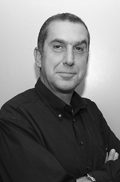| Mehmet Murat BEKDİK | |
| Editor-in-Chief |

|
TOWARDS A NEW WORLD ORDER BEYOND ENVIRONMENTAL SENSITIVENESS |
Under conventional notions of how to run a conglomerate like Unilever, CEO Patrick CESCAU should wake up each morning with a laserlike focus: how to sell more soap and shampoo than Procter & Gamble Co. But ask CESCAU about this $52 billion giant's biggest strategic challenges for the 21st century. The reply will vary from water-deprived villages in Africa to the planet's warming climate. Practically, the world is Unilever's laboratory. In Brazil, the company operates free community laundries in the slums of Sao Paulo, provides financing to help tomato growers convert to eco-friendly drip irrigation, and recycles 17 tons of waste annually at a toothpaste factory. Unilever funds a floating hospital that offers free medical care in Bangladesh, a nation with just 20 doctors for every 10,000 people. In Ghana, it teaches palm oil producers to reuse plant waste while providing potable water to deprived communities. In India, Unilever staff help thousands of women in remote villages start micro-enterprises. And responding to green activists, the company discloses how much carbon dioxide and hazardous waste its factories spew out around the world. As CESCAU sees it, helping such nations wrestle with poverty, water scarcity, and the effects of climate change is vital to staying competitive in coming decades. Some 40 percent of the company's sales and most of its growth now take place in developing nations.
A remarkable number of CEOs have begun to commit themselves to the same kind of sustainability goals CESCAU has pinpointed, even in profit-obsessed America. For years, the term "sustainability" has carried a lot of baggage. Put simply, it's about meeting humanity's needs without harming future generations.
You can tell something is up just wading through the voluminous sustainability reports most big corporations post on their Web sites. These lay out efforts to cut toxic emissions, create eco-friendly products, help the poor, and cooperate with nonprofit groups. As recently as five years ago, such reportsif they appeared at allwere usually transparent efforts to polish the corporate image. Now there's a more sophisticated understanding that environmental and social practices can yield strategic advantages in an interconnected world of shifting customer loyalties and regulatory regimes. I would like to sample top companies confirming this approach. In the automotive industry, Toyota, the maker of top-selling Prius hybrid leads in developing efficient gas-electric vehicles. Renault integrates sustainability throughout organization. Volkswagen is a market leader in small cars and clean diesel technologies. In the communication equipment industry, Nokia makes phones for handicapped and low income consumers. It is a leader in phasing out toxic materials. Ericsson has eco-friendly initiatives includes wind and fuel cell powered telecom systems in Nigerian villages. Motorola has good disclosure of environmental data. It takes back used equipment in Mexico, USA, and Europe. In computers and peripherals industry, Hewlett-Packard rates high on ecological standards and digital technology for the poor. Toshiba is at the front of developing eco-efficient products such as fuel cells for notebook PC batteries. Dell is among the first USA PC makers to take hardware back from consumers and recycle it for free. In financial services, ABN AMRO finances everything from micro enterprises to biomass fuels. HSBC lends guidelines for forestry, freshwater, and chemical sectors factor in social, ecological risks. ING helps developing nations improve financial institutions. In health industry Fresenius Medical Care discloses costs of its patient treatment in terms of energy and water use and waste generated. IMS Health places unusual emphasis on environmental issues in its global health consulting work. Quest Diagnostics has diversity program promoting businesses owned by minorities, women, and veterans. In household durables industry, Philips Electronics is the top innovator of energy-saving appliances, lighting, medical gear and goods for developing world. Sony is ahead on green issues and ensuring quality, safety, and labor standards of global suppliers. Matsushita Electric eliminated 96 percent of the most toxic substances in its global operations. In oil and gas industry, Royal Dutch Shell leads in community since Nigerian human rights woes in 90s. It invests in wind and solar energy. Norsk Hydro cut greenhouse gas emissions 32 percent since 1990. It is strong in assessing social, environmental impact. Suncor Energy has ties with aboriginals help it deal with social and ecological issues in Canadas far north. In the pharmaceuticals industry, Roche has committed to improving access to medicine in poor nations. It invests in drug research for Third World. Novo Nordisk leads in efforts for diseases like leprosy and bird flu. Glaxo-Smithkline one of the few pharmaceutical companies that devote R&D to malaria and TB. It is first company offers AIDS drugs at cost. In retail industry, Marks&Spencer buys local product to cut transit costs and fuel use. Home Retail Groups high overall corporate responsibility standards have led to strong consumer and staff loyalty. Aeons environmental accounting has saved $5.6 million. It has good employee policies in China and South East Asia. In the utilities industry, FPL is largest USA solar generator. It has 40 percent of wind power capacity. Iberdola has renewable energy accounts for 17 percent of capacity since Scottish Power takeover. Scottish&Southern aggressively discloses environmental risk, including air pollution and climate change.
Consequently, all these examples may be perceived as the precursor of transformation to a world where social responsibility and eco-friendly practices increase corporate revenue much before than expected.
